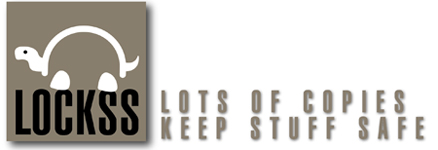- Focus and Scope
- Section Policies
- Peer Review Process
- Archiving
- Open Access Policy
- Article Processing Charges (APCs) & Article Submission Charges
- Publications Ethic
Focus and Scope
J-MKLI (Jurnal Manajemen dan Kearifan Lokal Indonesia), is the online journal under of the Asosiasi Peneliti Manajemen Adat Indonesia (APMAI). J-MKLI (Jurnal Manajemen dan Kearifan Lokal Indonesia) ready to publish research articles, a review from the researchers associated with the field of management science.
J-MKLI (Jurnal Manajemen dan Kearifan Lokal Indonesia) publishes research articles, reviews and short original writings in the field of management, include:
- Financial management,
- Marketing management,
- Human resources management,
- Organizational behaviour,
- Strategic management,
- Operational management,
- Management accounting,
- Hospitality & tourists management,
- Real estate management,
- Supply Chain Management,
- Green Management,
- Entrepreneurship
Section Policies
Articles
Peer Review Process
Article submitted on J-MKLI (Jurnal Manajemen dan Kearifan Lokal Indonesia) would be going through a process of double blind peer-reviewed. Every submitted paper will be reviewed by at least two peer-reviewers. This ethical statement binds the behavior of the author, the editor, reviewers and the publisher. Articles are accepted in J-MKLI (Jurnal Manajemen dan Kearifan Lokal Indonesia), can be followed by a process of peer-reviewed online. The language used in this journal is Indonesian language.Archiving

This journal utilizes the LOCKSS system to create a distributed archiving system among participating libraries and permits those libraries to create permanent archives of the journal for purposes of preservation and restoration. More...
Open Access Policy
This journal provides immediate open access to its content on the principle that making research freely available to the public supports a greater global exchange of knowledge.
This journal is open access journal which means that all content is freely available without charge to users or / institution. Users are allowed to read, download, copy, distribute, print, search, or link to full text articles in this journal without asking prior permission from the publisher or author. This is in accordance with Budapest Open Access Initiative.
J-MKLI (Jurnal Manajemen dan Kearifan Lokal Indonesia) by https://journal.apmai.org/v2/index.php/jmkli is licensed under a Creative Commons Attribution 4.0 International License.
Article Processing Charges (APCs) & Article Submission Charges
This journal charges the following author fees.
Article Submission FREE: 0.00 (Rp)
Fast-Track Review FREE: 0.00 (Rp)
Article Publication PAY: 750.000 (Rp) APMAI members
Article Publication PAY: 1.000.000 (Rp) non members
Publications Ethic
Our ethic statements are based on COPE’s Best Practice Guidelines for Journal Editors.
There are three parties that should consider the ethical policy of J-MKLI (Jurnal Manajemen dan Kearifan Lokal Indonesia.
ETHICAL POLICY FOR AUTHORS
It is entirely the responsibility of the author to ensure that any manuscript submitted to J-MKLI (Jurnal Manajemen dan Kearifan Lokal Indonesia) includes: assurance of originality, acknowledged assistance from co-authors and editors, requisite citations, and is completely free from plagiarism. Authors must understand that plagiarism takes many forms, including inappropriate paraphrasing, which may lead to a misinterpretation of the original source. Additionally, authors must use discretion when knowingly publishing information that may result in harm to those named in their academic work. Information of this kind cannot be published without explicit, written permission from those persons to whom the information pertains.
J-MKLI (Jurnal Manajemen dan Kearifan Lokal Indonesia) uses a very strict code of conduct on how to disseminate knowledge. It is always with an editorial deep awareness that all published manuscripts must meet the very high qualified academic standard to protect the integrity of the Journal and author. Additionally, as part of the worldwide networks of open journals, J-MKLI (Jurnal Manajemen dan Kearifan Lokal Indonesia) is also committed to providing free issues with highly qualified publications.
All authors that use doctrinal and desk research should ensure that their references provide diverse and balanced information in order to take a neutral position when proposing an argument. Authors that use empirical data should provide enough and rich information in order to help them develop analysis and propositions. Authors must also declare that their manuscript is original and cite all references properly.
ETHICAL POLICY FOR EDITORS
EDITORS should be accountable and responsible for everything published in the J-MKLI (Jurnal Manajemen dan Kearifan Lokal Indonesia). To ensure that editors can achieve all ethical standards, they must operate under the standard of a double-blind review process to ensure the quality of the manuscript and decide whether the manuscript will be accepted or rejected solely based on its originality, quality, and prospect for knowledge dissemination for readers. Editors are prohibited to apply a discriminative policy by giving priority or discouraging certain authors based on their religion, beliefs, ethnicity, gender, sexual orientation, or any form of personal background.
The ethics policy may also require Editors to re-check manuscripts before making a decision. Editors are often asked to communicate with reviewers and authors in order to clarify and enrich the substance of manuscripts. This communication will not reduce the authority of editors to accept or decline the manuscripts.
ETHICAL POLICY FOR REVIEWERS
All reviewers must be aware that they are only mandated to review substance, not manuscript layout or language spelling. The layout will be completed by a copy editor while language spelling and grammatical errors will be checked by a copy editor or language proofreader.
All reviewers cannot disclose the confidentiality of author information.
All reviewers can decline the offer from the editorial office to review the manuscript if they think there will be a potential conflict of interest between reviewer and author. They can also decline the offer to review the manuscript if they believe their review work will not help authors to enrich the substance of the manuscript.








